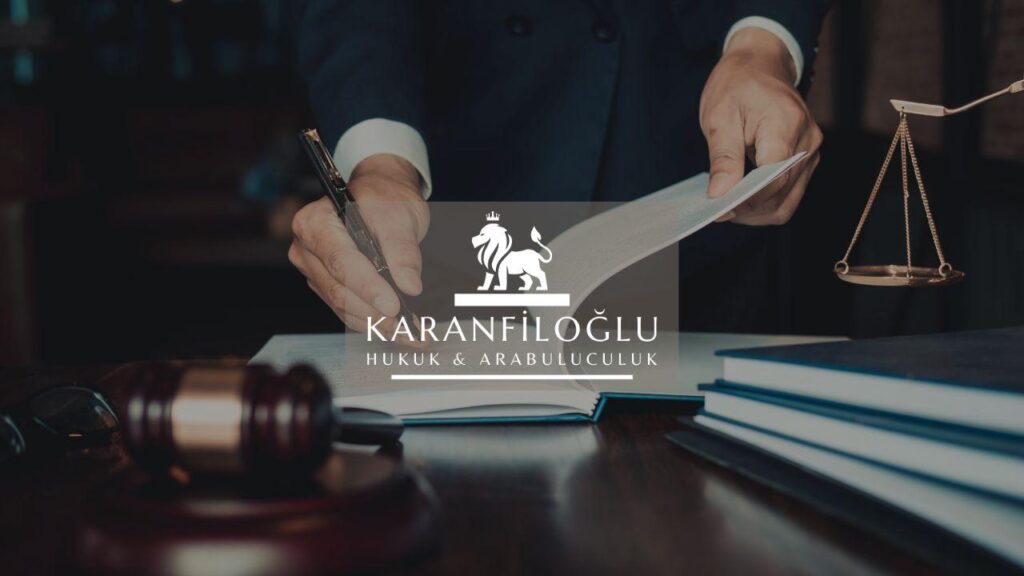Filing a discrimination complaint in Turkey requires a thorough understanding of the legal landscape and procedural requirements set forth by Turkish law. The primary legislation governing such matters includes the Turkish Constitution, particularly Article 10, which guarantees equality before the law, and Law No. 6701 on Human Rights and Equality Institution of Turkey (TİHEK). Individuals who believe they have experienced discrimination can initiate the complaint process by first reporting the incident to relevant administrative bodies, such as the Human Rights and Equality Institution or the Ombudsman Institution. Article 5 of the Turkish Labour Law No. 4857 specifically addresses discrimination in the employment context, providing legal grounds for redress. At Karanfiloglu Law Office, we offer comprehensive support throughout this process to ensure the protection of your rights and effective resolution of your case. Understanding the legal framework and procedural nuances is crucial for a successful outcome, and our experienced team is committed to guiding you every step of the way.
Understanding the Legal Grounds for Discrimination Complaints in Turkey
Understanding the legal grounds for discrimination complaints in Turkey begins with recognizing the constitutional and legislative protections in place. Article 10 of the Turkish Constitution explicitly states that everyone is equal before the law without distinction based on language, race, color, sex, political opinion, philosophical belief, religion, and sect or any such consideration. Furthermore, Law No. 6701, which established the Human Rights and Equality Institution of Turkey (TİHEK), provides a more detailed framework for combating discrimination. Article 3 of this law prohibits discrimination on a wide array of grounds and mandates the rights of individuals to seek compensation and redress. Additionally, in the employment context, Article 5 of the Turkish Labour Law No. 4857 prohibits any form of discrimination by employers, ensuring that employees are treated fairly regardless of their gender, political opinion, or other personal characteristics. The comprehensive legal framework thus ensures multiple avenues for individuals to seek justice and maintain equality.
The mechanisms for filing discrimination complaints in Turkey are detailed and specific, requiring victims to follow a set protocol to ensure their grievances are properly addressed. Initially, individuals can submit their complaints directly to the Human Rights and Equality Institution of Turkey (TİHEK) under Article 17 of Law No. 6701. This process involves a written submission detailing the alleged discriminatory act, the context, and any supporting evidence. TİHEK holds the authority to investigate complaints, conduct hearings, and impose sanctions if discrimination is found. In cases related to employment, complaints can also be directed to the Labour Courts under Article 20 of the Turkish Labour Law No. 4857, which oversees employment disputes. These courts can order reparations for the complainant, including monetary compensation and reinstatement in certain cases. By following these formal channels, individuals can ensure that their complaints are addressed within the legal framework, promoting accountability and adherence to anti-discrimination laws.
It is also essential to be aware of the broader scope of protection provided under the Turkish Civil Code and the Turkish Penal Code, which address various forms of discrimination beyond employment and public services. Article 122 of the Turkish Penal Code imposes criminal penalties for discrimination based on language, race, color, gender, political opinion, philosophical belief, religion, or sect in the provision of goods and services. Moreover, the Turkish Civil Code grants individuals the right to seek non-pecuniary damages for violations of their personal rights, including discrimination. This comprehensive legal landscape ensures that victims of discrimination have multiple avenues for redress, whether through administrative bodies like TİHEK, judicial mechanisms in civil and labor courts, or even criminal proceedings. At Karanfiloglu Law Office, we are committed to guiding you through these pathways to effectively address and resolve your discrimination complaints, ensuring your rights are upheld and justice is served.
Key Steps and Documentation Required for Filing a Discrimination Complaint
The first step in filing a discrimination complaint in Turkey involves gathering all relevant evidence and documentation to substantiate your claim. This includes any written correspondence, emails, witness statements, or other records that demonstrate discriminatory behavior. Under Article 20 of Law No. 6701, it is imperative to provide as much detailed information as possible about the incident, including dates, locations, and names of those involved. Proper documentation not only strengthens your case but also ensures that the Human Rights and Equality Institution can effectively investigate the complaint. At Karanfiloglu Law Office, our legal experts assist clients in compiling and organizing this critical evidence to build a solid foundation for their case.
Once you have gathered the necessary evidence, the next step is to formally submit your complaint to the appropriate authority. You can file your complaint directly with the Human Rights and Equality Institution of Turkey (TİHEK) or, in some cases, the Ombudsman Institution. It is essential to provide a detailed account of the discriminatory incident and attach the relevant documentation as stipulated by Article 17 of Law No. 6701. The complaint form must be diligently filled out, addressing all required fields to avoid any administrative delays. At Karanfiloglu Law Office, we ensure that your submission meets all legal standards, helping you articulate your experience precisely and effectively to the designated institutions.
Following the submission of your complaint, the investigative process will commence. The Human Rights and Equality Institution of Turkey (TİHEK), as mandated by Article 25 of Law No. 6701, will review your case to determine its validity and begin an inquiry if necessary. This may involve interviews with witnesses, examination of the submitted evidence, and potentially, an on-site investigation. Throughout this period, you may be required to provide additional information or clarification. It’s important to cooperate fully with the investigation to ensure a thorough examination of your case. At Karanfiloglu Law Office, we offer continual support during this phase, helping you respond to requests from investigative authorities and ensuring that your rights are upheld throughout the process.
Navigating the Legal System: What to Expect After Filing a Complaint
Once a discrimination complaint is filed with the relevant authorities, such as the Human Rights and Equality Institution of Turkey (TİHEK) under Law No. 6701 or the Ombudsman Institution, the first step is the preliminary examination. This involves an initial assessment to determine whether the complaint has merit and falls within the jurisdiction of the respective body. According to Article 17 of Law No. 6701, if the institution finds the complaint admissible, they will notify the accused party and request a formal response within a designated timeframe. During this period, both parties may be invited to provide further evidence or attend mediation sessions aimed at reaching an amicable resolution. Understanding these early stages is crucial as it sets the tone for the rest of the legal process, ensuring that both parties are adequately prepared and informed. At Karanfiloglu Law Office, we help clients navigate these initial steps with precision, aiming for clarity and focus right from the start.
If mediation does not lead to a resolution or is deemed unsuitable, the case then moves into a more formal investigation phase. Under Article 18 of Law No. 6701, the Human Rights and Equality Institution of Turkey (TİHEK) will conduct a thorough investigation, which may include collecting witness testimonies, requesting documents from both parties, and conducting on-site inspections if necessary. The institution has the authority to issue binding recommendations and impose administrative fines if discrimination is confirmed. Meanwhile, if the complaint pertains to employment discrimination, Article 5 of the Turkish Labour Law No. 4857 allows for recourse through labor courts, which can order reinstatement, compensation, or even criminal proceedings where applicable. At Karanfiloglu Law Office, we ensure our clients are well-represented and their cases diligently pursued during these critical stages, leveraging our expertise to secure just outcomes.
After the investigation, the final stage involves the resolution and possible appeal process. TİHEK is mandated by Article 19 of Law No. 6701 to issue a decision within a stipulated period, outlining the findings and any measures to be taken, including reparations for the complainant or penalties for the respondent. If the decision is unsatisfactory or either party disputes the findings, they have the right to appeal to administrative courts within 30 days, as provided under the Administrative Procedure Act No. 2577, Article 7. Furthermore, cases with a criminal element can be transferred to public prosecutors, who may initiate criminal proceedings based on the evidence collected. At Karanfiloglu Law Office, we extend our support through every phase of this process, from initial filing to potential appeals and enforcement of decisions, ensuring that our clients’ rights are staunchly protected and their grievances are comprehensively addressed.
Disclaimer: This article is for general informational purposes only and you are strongly advised to consult a legal professional to evaluate your personal situation. No liability is accepted that may arise from the use of the information in this article.







